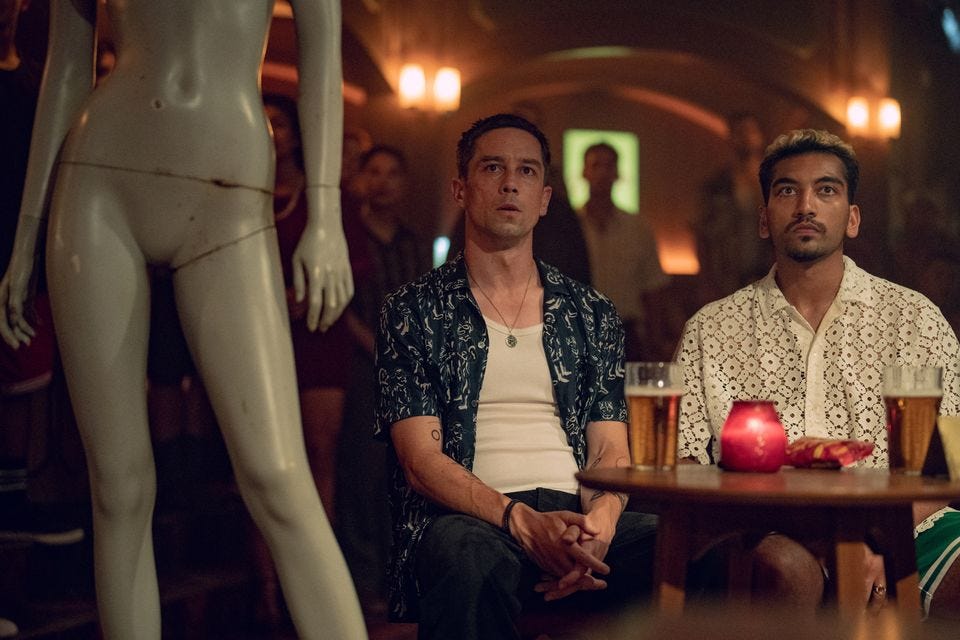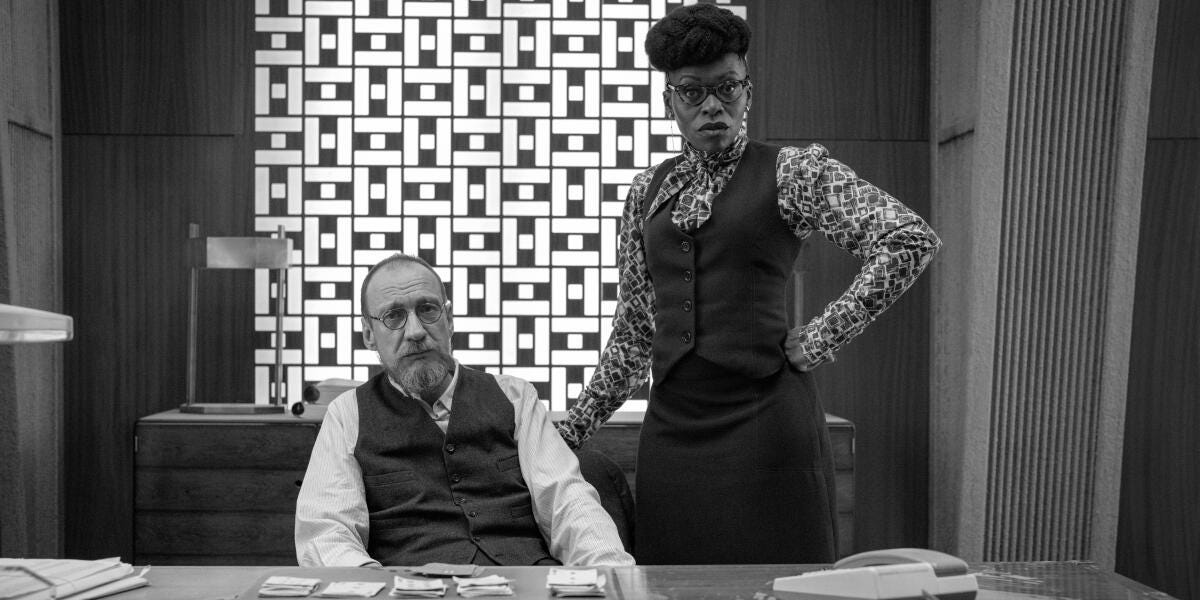In 1898, the classical scholar Thomas Dwight Goodell wrote a piece for The Atlantic in defence of original Greek literature, which some of his contemporaries considered irrelevant – “merely the germ of which the Elizabethan drama is the full flower”. Yet, thousands of years later, the Greek myths are still powerful, continuously enriching our culture and making their way into a variety of new mediums.
One such example, drawing greatly from these myths, is Kaos. What if Zeus was a tasteless, paranoid, insecure, tyrannical deity with a best friend, who’s also his long-time prisoner (Prometheus), plotting a gutsy scheme for his downfall? An eight-part Netflix series revolves exactly around that. But, just like in mythology, a lot is happening at the same time. And although it may seem confusing, everything is carefully planned, as no one can escape their fate.
In short (it won’t be short) – a white-suited Zeus (Jeff Goldblum) rules as selfishly and happily as mercilessly, spending his time, strolling around the impressive palace and gardens on Mount Olympus till the annual Olympia celebration in Krete. In this world, there’s no god. There are gods, and the world is moulded to fit their ruling. The celebration involves an “annual human sacrifice” (it is not Disney’s Hercules) and the unveiling of a new monument to Zeus. This time, the statue was found to have been desecrated by Trojans (a group that is said to have found a merciful refuge in Krete after a war, while actually being treated as second-class citizens). What’s worse - Zeus finds a new wrinkle on his forehead, which he insists must be the beginning of the fulfilment of his prophecy – “a line appears, the order wanes, the Family falls, and Kaos reigns”. Quite unfortunate for a highly paranoid god, even more so for people around and under him.
Meanwhile, three mortals – Eurydice (Aurora Perrineau), Caneus (Misia Butler), and Ariadne (Leila Farzad) embark on a journey to fulfil their identical prophecies. Orpheus (Killian Scott), of course, sets off to bring his wife back from the underworld with the help of Dionysus (Nabhaan Rizwan). More of a hindrance than help as the god of pleasure tries, at least at first, to get his own back on his father as in a truly accurate Greek mythology fashion - they all have daddy issues.
Oh, and there’s Prometheus (Stephen Dillane) – called a friend by Zeus, but more of his immortal enemy, working hard to bring about the fulfilment of the prophecy while narrating the story. Hades (David Thewlis), overseeing the crumbling system of the world, Hera, the Queen and sister (Janet McTeer), trying to encourage Zeus to keep his dignity and calm. And so many more, as Kaos skillfully reinterprets classic tale figures with “their themes of familial strife, populist rebellion, and the struggle between free will and destiny”. A visually rich, darkly funny story highlighting the prevailing relevance of these tales while not taking itself too seriously at the same time.
Despite its name and what could possibly be judged by my description – Kaos, created by Charlie Covell (The End of the F***ing World) and first greenlit by Netflix back in 2018, is anything but chaotic. Covell’s multi-stranded, nicely paced script, easily switching Lord-of-the-Rings-style from Olympus to Earth to Hades, is confident and seemingly effortless, although stuffed with both action and jokes. While strongly using the theme of free will versus destiny, so vital in Greek myths, they use the huge array of characters to delve into the question of what it means to be human, of power, control, and the inevitable fall of authority.
The cast is exceptional. Jeff Goldblum is in his element as Zeus – as weird as evil – with every one of his lines being a small treasure. To look at each actor’s performance, it’s easy to appreciate Janet McTeer’s regally vicious aura, David Thewlis’s mournful tiredness, and Misia Butler’s subtle melancholy. Personally, I fell in love with Nabhaan Rizwan’s Dyionizos – debauchedly joyful yet filled with feelings of torment, and craving respect from his father. Quite human for a god, this one.
The set-dressing choices also create an intriguingly engaging basis – the Olympus is bright and colourful, our mortal world is gritty and deep, and the Underworld is monochrome. Yet, it all is connected through the characters, looking for their path. If you’re a Greek mythology fan, you’ll find endless fun in figuring out when Covell sticks to the canon and when they simply become playful with the stories. But what’s fascinating for everyone is to reflect on myth-making and tales that are supposed to give our lives purpose. Do you really believe everything you’ve been told? One of the words used often in this world is “vero”, a bit of the equivalent of both “amen” and “god bless”. In Latin, “vero” means “truthfully”, “indeed”, or “certainly”. Ironic, as the gods are anything but that.
Anyway.
While Kaos is anything but a flop, at least in a non-statistical way. Kaos will not reign as just last week, Netflix announced the show’s cancellation after only one season, despite favourable reviews, but due to “small viewership”. No matter how disappointing it is not to be able to see more of that tale, go and watch it if you haven’t already. Don’t let it be just another number in the great streaming algorithm. And you know, sometimes miracles happen. If they’re profitable enough.
(Psst. We’re going to talk about it soon - a post about TV shows’ cancellations is in the works).






